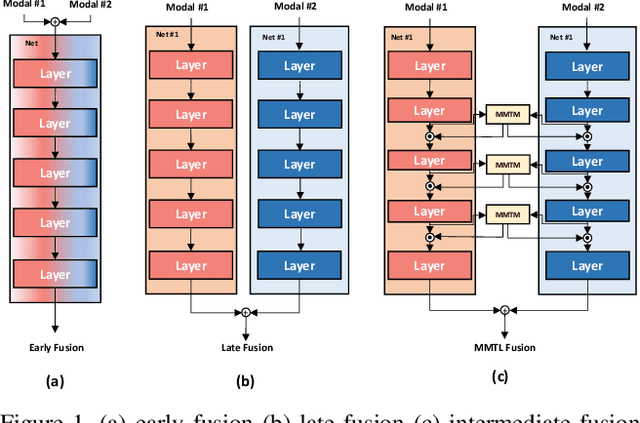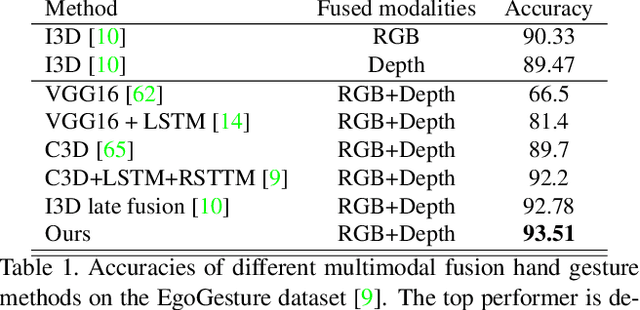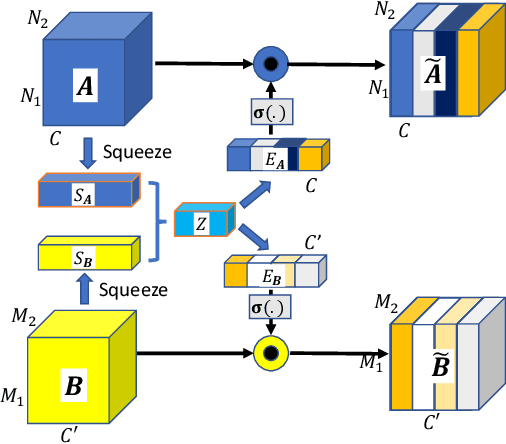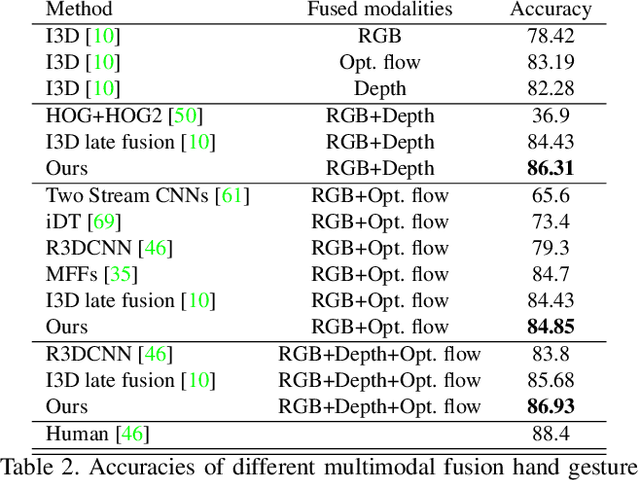MMTM: Multimodal Transfer Module for CNN Fusion
Paper and Code
Nov 20, 2019



In late fusion, each modality is processed in a separate unimodal Convolutional Neural Network (CNN) stream and the scores of each modality are fused at the end. Due to its simplicity late fusion is still the predominant approach in many state-of-the-art multimodal applications. In this paper, we present a simple neural network module for leveraging the knowledge from multiple modalities in convolutional neural networks. The propose unit, named Multimodal Transfer Module (MMTM), can be added at different levels of the feature hierarchy, enabling slow modality fusion. Using squeeze and excitation operations, MMTM utilizes the knowledge of multiple modalities to recalibrate the channel-wise features in each CNN stream. Despite other intermediate fusion methods, the proposed module could be used for feature modality fusion in convolution layers with different spatial dimensions. Another advantage of the proposed method is that it could be added among unimodal branches with minimum changes in the their network architectures, allowing each branch to be initialized with existing pretrained weights. Experimental results show that our framework improves the recognition accuracy of well-known multimodal networks. We demonstrate state-of-the-art or competitive performance on four datasets that span the task domains of dynamic hand gesture recognition, speech enhancement, and action recognition with RGB and body joints.
 Add to Chrome
Add to Chrome Add to Firefox
Add to Firefox Add to Edge
Add to Edge